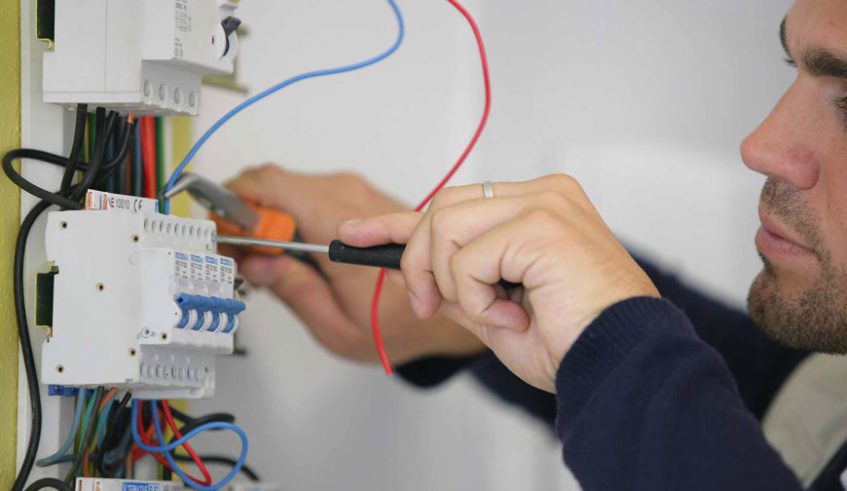Commercial renovation projects are ambitious undertakings that can rejuvenate a business space, increase operational efficiency, and boost property value. Whether upgrading a retail location, modernizing office interiors, or transforming a restaurant, such renovations often require significant electrical work. In these scenarios, the role of a certified electrician is not only beneficial—it is essential.
Understanding Commercial Renovation
Commercial renovation refers to the process of modifying, updating, or improving a commercial property to meet new business needs, comply with regulations, or simply enhance its appearance and functionality. Typical renovations may include:
· Redesigning office layouts and workspaces
· Upgrading lighting systems for energy efficiency
· Installing new HVAC and security systems
· Updating electrical wiring and outlets
· Integrating modern technology infrastructure
· Ensuring compliance with updated building and safety codes
While some aspects of renovation can be handled by general contractors, all electrical work should be entrusted to certified electricians. Their training, experience, and adherence to local codes help ensure the safety and future-proofing of your business environment.
The Role of a Certified Electrician
A certified electrician is an individual who has undergone formal education, apprenticeship, and licensing examinations to prove their competency in handling electrical systems. In the context of commercial renovation, certified electricians are responsible for:
· Assessing the current state of electrical systems
· Designing electrical plans tailored to the renovation’s scope
· Upgrading or replacing outdated wiring and panels
· Ensuring all electrical installations meet regulatory standards
· Troubleshooting complex electrical challenges unique to commercial properties
· Coordinating with other contractors and stakeholders
Why Certification Matters
Certification is not just a badge—it is a legal and safety requirement in most jurisdictions. Certified electricians:
· Understand and adhere to the National Electrical Code (NEC) and local codes
· Carry liability insurance, protecting business owners from costly mistakes
· Regularly update their knowledge and skills through continuing education
· Are trained to identify and manage electrical hazards
Hiring an uncertified individual or attempting DIY electrical work in a commercial setting can result in hazardous conditions, failed inspections, and costly delays.
Key Phases of Commercial Renovation with a Certified Electrician
1. Initial Assessment & Planning
The process begins with a thorough assessment of existing electrical systems. The electrician will inspect wiring, panels, lighting, emergency systems, and any specialized equipment unique to your business. They will then help develop a renovation plan that addresses current deficiencies and anticipates future needs.
2. Design and Permitting
In most cases, electrical upgrades require official permits from local authorities. Certified electricians prepare detailed electrical plans and submit them for approval. This ensures all work will comply with building codes and will pass final inspections.
3. Demolition and Preparation
During renovation, old wiring, fixtures, and panels that no longer meet standards are safely removed. The electrician manages hazardous materials, such as asbestos in old insulation or obsolete electrical components.
4. Installation and Upgrades
This stage involves installing:
· New wiring and circuit breakers
· Energy-efficient lighting systems (e.g., LED)
· Smart controls and automation
· Additional outlets and dedicated circuits for specialized equipment
· Modern fire alarm and emergency lighting systems
Every installation is done according to code, ensuring safety and longevity.
5. Testing and Inspection
Certified electricians conduct rigorous testing of all systems to ensure they function correctly and safely. They also coordinate with inspectors for final sign-off, providing documentation as required.
6. Ongoing Maintenance and Support
A good electrician will offer maintenance plans and emergency support to address issues that may arise after renovation. This helps businesses avoid downtime and ensures compliance with safety regulations over time.
Common Electrical Upgrades in Commercial Renovations
Lighting Improvements
Lighting is one of the simplest yet most impactful upgrades. Certified electricians can install energy-efficient LED panels, motion sensors, and smart lighting controls that reduce utility costs and improve ambiance.
Power Distribution and Outlets
Modern businesses require more electronic devices than ever. Adding circuits, upgrading panels, and installing additional outlets can prevent overloads and facilitate flexible workspace design.
Technology Integration
Certified electricians work alongside IT professionals to install structured wiring for high-speed internet, surveillance, and access control systems.
Emergency Systems
From fire alarms to emergency backup power, these systems are legally required in most commercial spaces and must be professionally installed and regularly tested.
Safety and Compliance
Safety is paramount in any commercial renovation. Certified electricians ensure compliance with:
· Occupational Safety and Health Administration (OSHA) standards
· Americans with Disabilities Act (ADA) requirements for accessible electrical installations
· Fire codes and egress lighting regulations
· Environmental guidelines for safer, energy-efficient systems
Non-compliance can result in fines, legal liabilities, and insurance complications.
Benefits of Hiring a Certified Electrician
· Safety: Protects staff, customers, and assets from electrical accidents
· Reliability: Reduces the risk of outages or malfunctions during business hours
· Efficiency: Ensures systems are optimized for energy usage, saving money
· Future-proofing: Prepares your facility for technological upgrades and expansion
· Liability Protection: Avoids costly mistakes and ensures proper documentation
Choosing the Right Certified Electrician
When selecting an electrician for your commercial renovation, consider the following:
· Proof of certification and licensing
· Experience with commercial projects similar to yours
· Positive references and reviews
· Strong communication skills
· Comprehensive warranties and post-project support
Request detailed quotes and written contracts to clearly outline the project’s scope, costs, and timelines.
Conclusion
Renovating a commercial space is an investment in your business’s future. Entrusting the electrical component to a certified electrician ensures safety, compliance, efficiency, and peace of mind. Whether you are upgrading lighting, expanding operations, or integrating smart technology, professional electrical expertise is the foundation of a successful renovation. Always prioritize certification, experience, and communication when choosing the right partner for your renovation journey.
